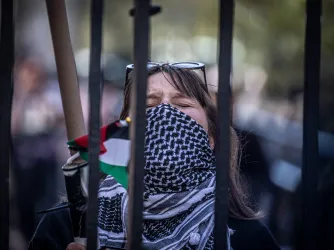Table of Contents
College Protests and the First Amendment
Research & Learn
What are your rights when it comes to protesting on a college campus? What forms of protest are protected? What is not? FIRE answers those questions and many more in our extensive library of legal explainers.
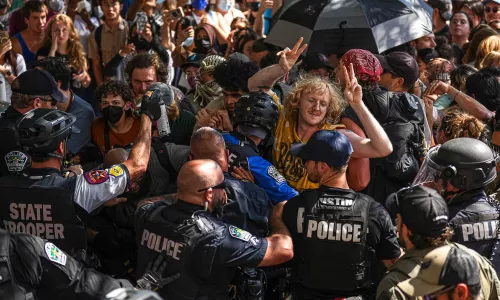
Student protest is a proud democratic tradition on our college campuses.
For generations, college students have engaged in protest to express their views, to actively participate in the public conversation and, in doing so, to draw wider attention to causes they care about. From the Civil Rights Movement and Vietnam War protests in the 1960s and 1970s to Black Lives Matter and Israeli-Palestinian Protests and Encampments in the 2020s, multiple generations of college students and faculty have taken to the quad to stand up for civil liberties.
Since FIRE's founding in 1999, we've seen students engage in First Amendment-protected peaceful protests. We’ve also seen severe campus disruptions, most recently sparked by the Oct. 7, 2023 Hamas attacks on Israel and subsequent war in Gaza. Hundreds of students across the country protested institutional engagement with Israel and showed solidarity with students at Columbia University, who were arrested for protesting in the form of a round-the-clock encampment. And in Texas, state troopers acting under Gov. Greg Abbott’s direction arrested at least 50 demonstrators at the University of Texas at Austin. This came after a March 27 executive order from Gov. Abbott, in which he singled out the Palestine Solidarity Committee, the same group that organized yesterday’s protest, for discipline in the event that the group violated campus speech policies designed to “address the sharp rise in antisemitic speech.”
The ability to distinguish between peaceful protest, civil disobedience, and genuine misconduct is as important now as ever.
To be clear: FIRE takes no stance on the content of the speech we defend. Time and time again, both recently and throughout our 25 years defending student rights, we’ve defended the rights of pro-Palestinian and pro-Israeli speakers alike. We defended the rights of students to campaign for Bernie Sanders and a professor who was fired for criticizing Mike Pence. We have defended the rights of athletes kneeling during the national anthem and students disciplined for distributing American flags; an animal rights advocate and a hunting club; student clubs hosting speakers on both the left and right; and so much more.
Yet we’ve always drawn a distinction between protected speech and unprotected conduct: The former reflects the core purpose of a functioning university; the latter undermines it.
Students should know their rights. We hope this Q&A will equip students to speak freely, and administrators to know what forms of protest are protected by the First Amendment.
FAQ for Student Protests on Campus
Know Your Rights
Planning a campus protest — or already part of one? To help get to know your rights, here are some answers to questions we’ve seen come up time and again in over two and a half decades of defending students’ right to free speech.
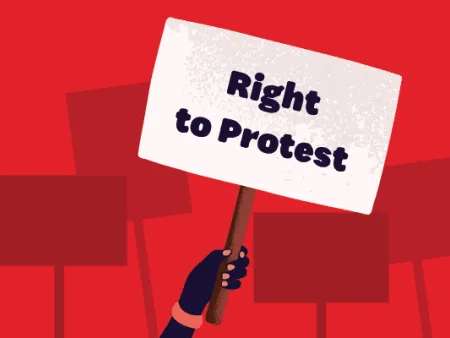
Your Rights Explained
For students, faculty, and administrators, here's what you need to know when a protest erupts on your college campus.

Protesting on public property: What you need to know
Issue Pages
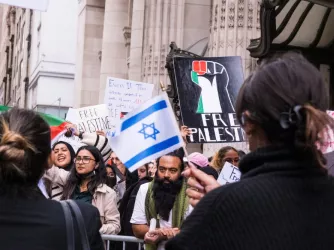
Protesting, postering, or planning a campus event? Your college’s policies might have just changed.
News
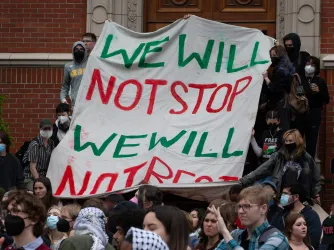
SURVEY: Most college students don’t know their college’s protest policies
News

How college leaders can overcome the current campus crisis
Analysis

Don’t turn commencement season into cancellation season
Op-Ed
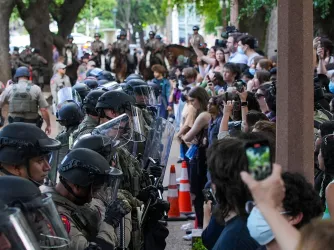
What student journalists need to know about covering campus protests
Analysis

Qualified Immunity isn’t just for police officers
Analysis

Campus encampment bans rarely violate the First Amendment. Here’s why.
Analysis

With colleges punishing student protesters, campus due process is more important than ever
Op-Ed

Freedom or safety? College admins don’t need to choose.
News

Here’s what students need to know about protesting on campus right now
Analysis

No, the Berkeley Law student didn’t have a First Amendment right to interrupt the dean’s backyard party
Analysis
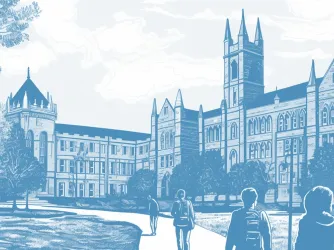
Institutional Neutrality and the Kalven Report
Issue Pages

Is saying ‘From the river to the sea, Palestine will be free’ protected speech under the First Amendment?
Analysis
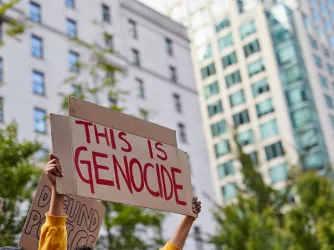
Why (most) calls for genocide are protected speech
Analysis
